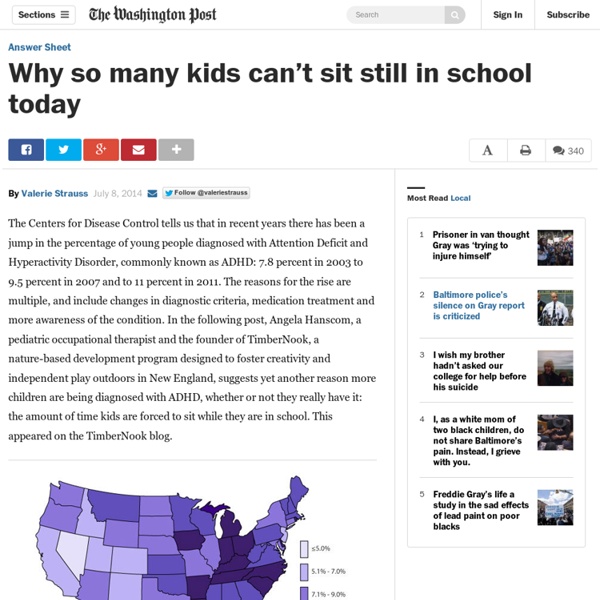Why so many kids can’t sit still in school today

Lekarkivet © 1999 - 2014 Din lekplats på nätet! -
Home | StopBullying.gov
EcoHealth Alliance
Motion för barn - folkhalsan.fi
Barn behöver rörelse och motion för att må bra och för att utvecklas. I skolan får barn ändå främst lära sig att sitta stilla. Visst måste barn också sitta stilla i skolan, men för att kunna göra det måste de också få röra sig tillräckligt. Barn har också olika behov av att röra på sig. En del barn behöver faktiskt mycket rörelse för att alls kunna koncentrera sig. Regelbunden fysisk aktivitet är viktig för elevernas hälsa, men också för att de ska orka med den teoretiska undervisningen. Organiserad och spontan rörelse är lika viktiga. Visste du att: • Miljön betyder mycket för att inspirera till rörelse – naturlik miljö ökar andelen fysisk aktivitet mest• Ju aktivare föräldrar desto mer aktiva barn• Mycket fysisk aktivitet i ungdomen ger bättre syreupptagningsförmåga som vuxen• Fysisk aktivitet behövs för att bygga upp skelettet och sker effektivast före puberteten• Fysisk aktivitet som ung påverkar både den fysiska och psykiska hälsan senare i livet Effekter av fysisk aktivitet Statistik
The right — and surprisingly wrong — ways to get kids to sit still in class
Robbi Giuliano teaches fifth-graders as they sit on yoga balls at Westtown-Thornbury Elementary School Monday on Feb. 4, 2013, in West Chester, Pa. (AP Photo/Matt Rourke) A post I published in July titled “Why so many kids can’t sit still in school today” seems to have struck a nerve with readers, who continue to read it in big numbers. The piece was by Angela Hanscom, a pediatric occupational therapist, who said that kids are being forced to sit for too long while they are in school and are being deprived of enough time for real physical activity. This, she said, is affecting their ability to learn and in some cases leading to improper ADHD diagnoses. Here is a follow-up post by Hanscom in which she talks about how to get kids moving in class and some of the mistakes teachers are making. By Angela Hanscom My last post, “Why so many kids can’t sit still in school today,” has and continues to generate tremendous feedback from around the world. However, when do we draw the line?
101 Simple Truths We Often Forget
post written by: Marc Chernoff Email It‘s not where we stand but in what direction we are moving. Sometimes we find ourselves running in place, struggling to get ahead simply because we forget to address some of the simple truths that govern our potential to make progress. The acquisition of knowledge doesn’t mean you’re growing. Photo by: Alexander Steinhof If you enjoyed this article, check out our new best-selling book. And get inspiring life tips and quotes in your inbox (it's free)...
Related:
Related:



